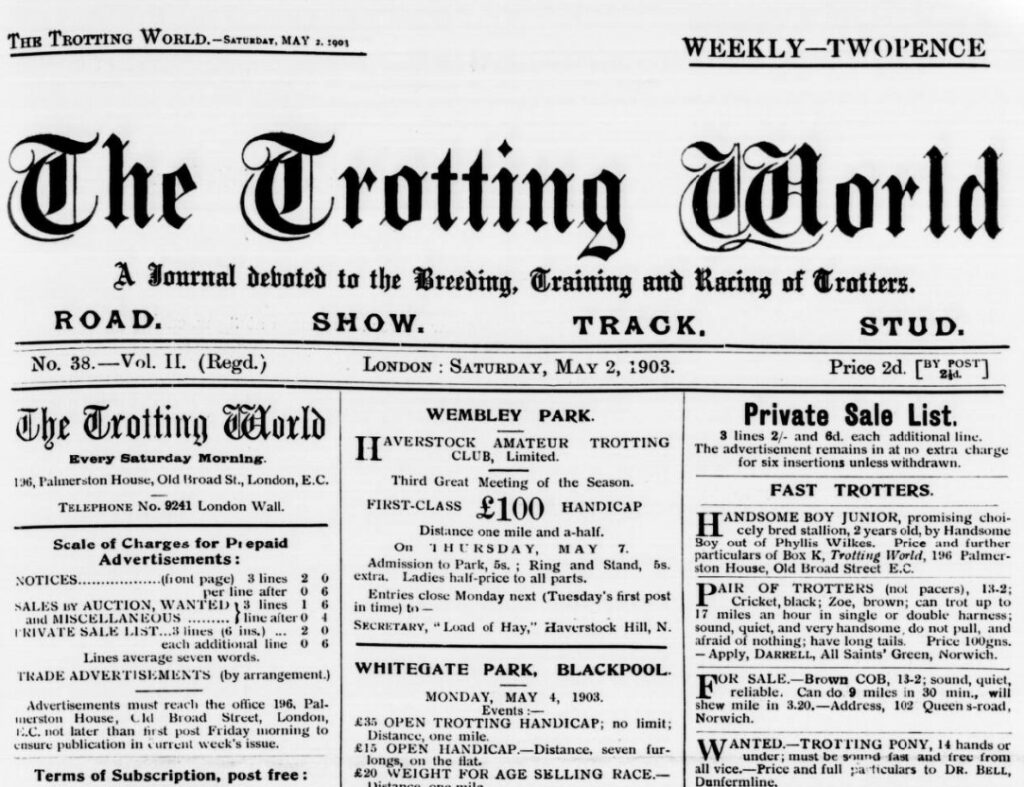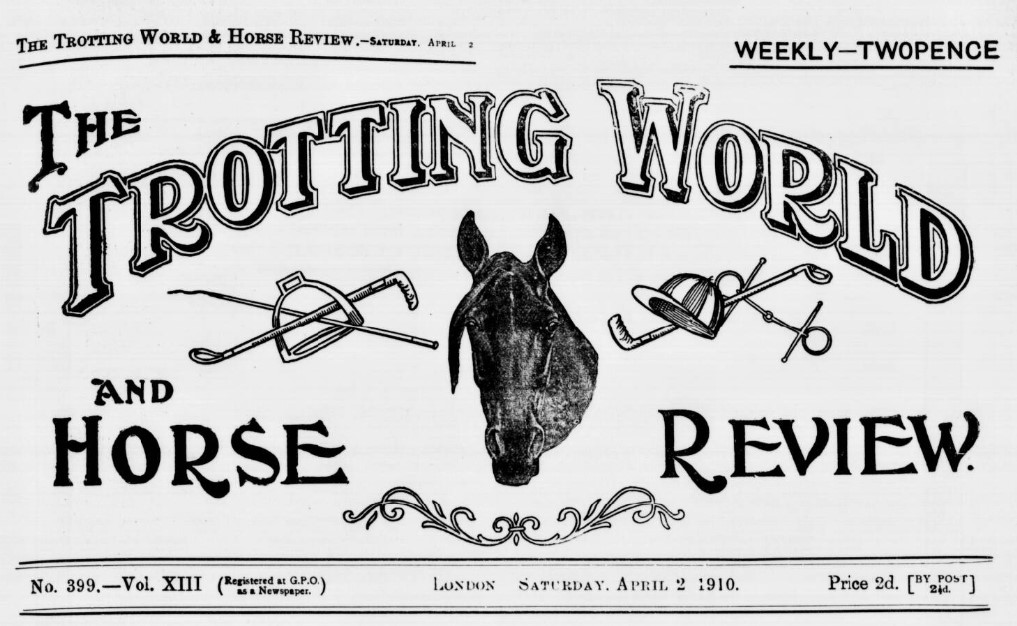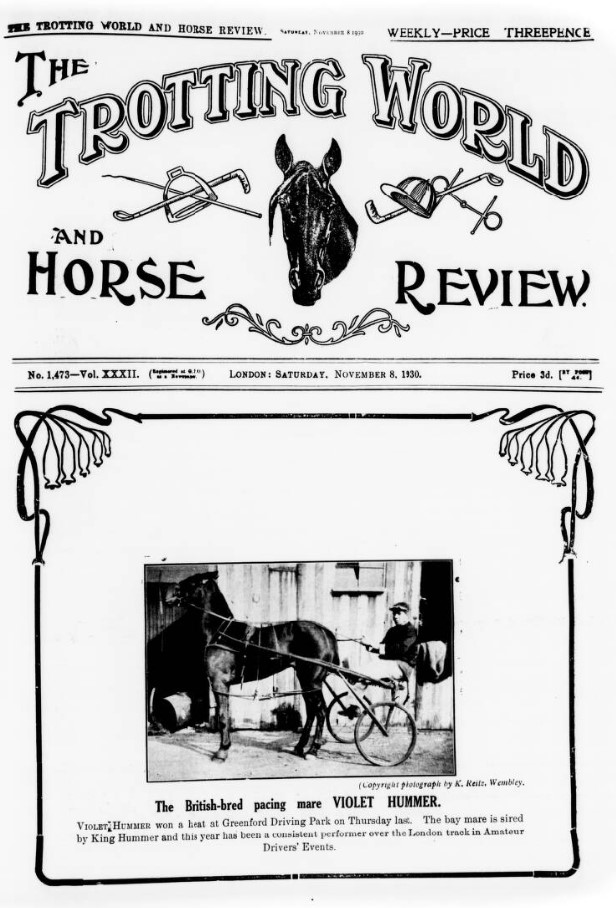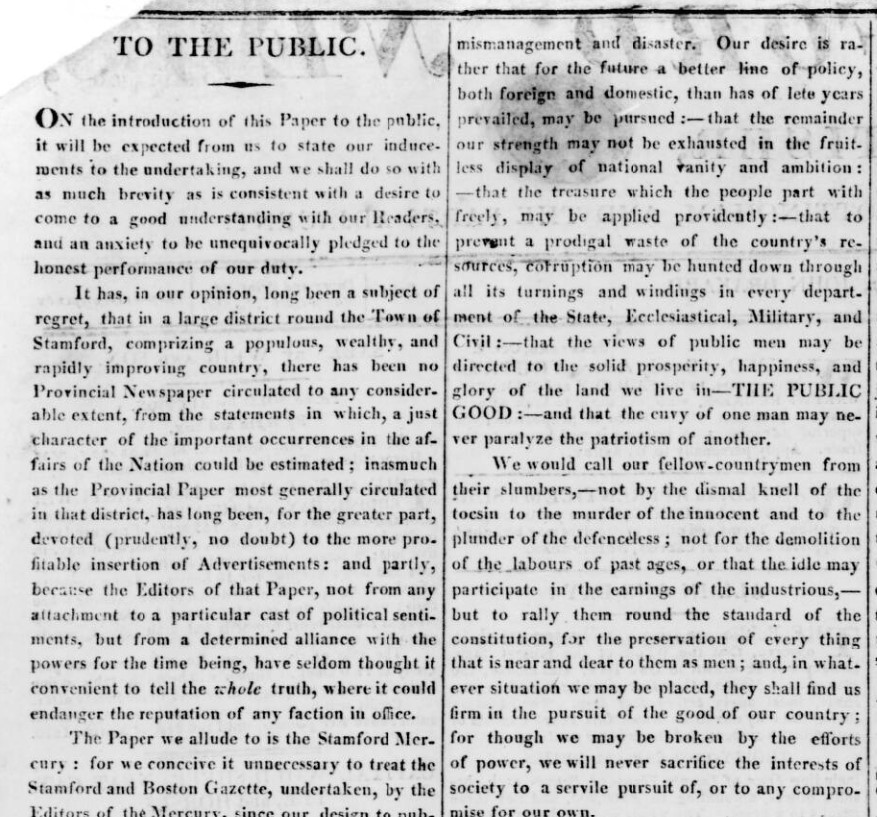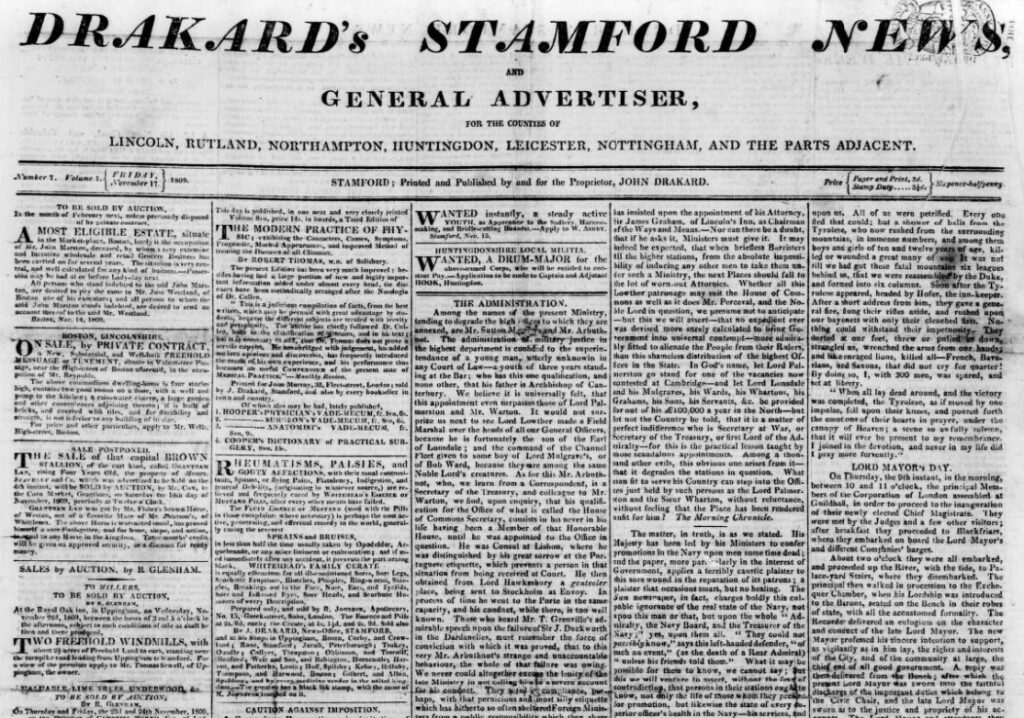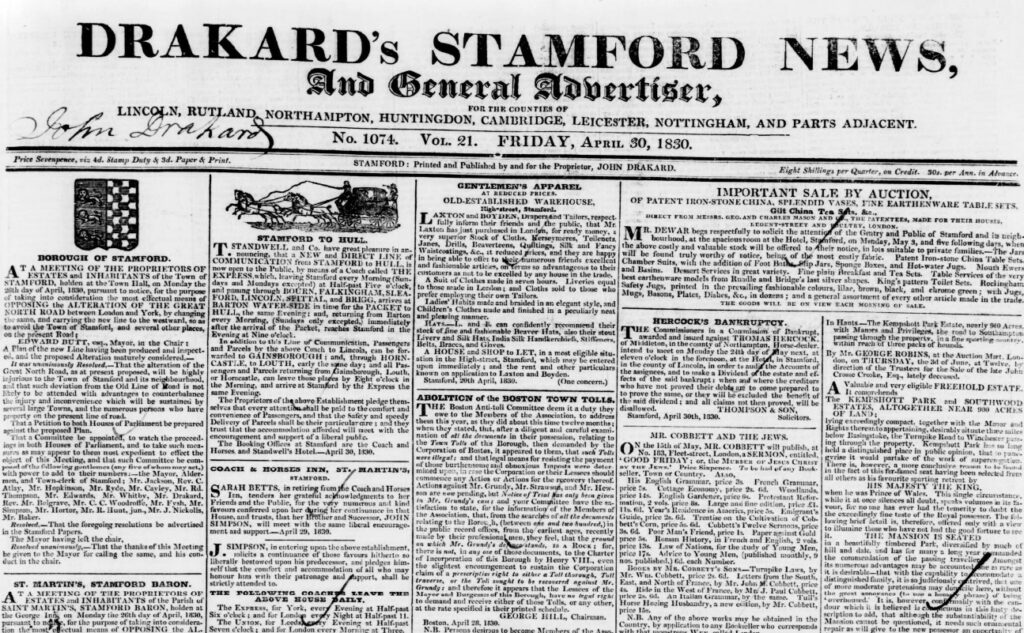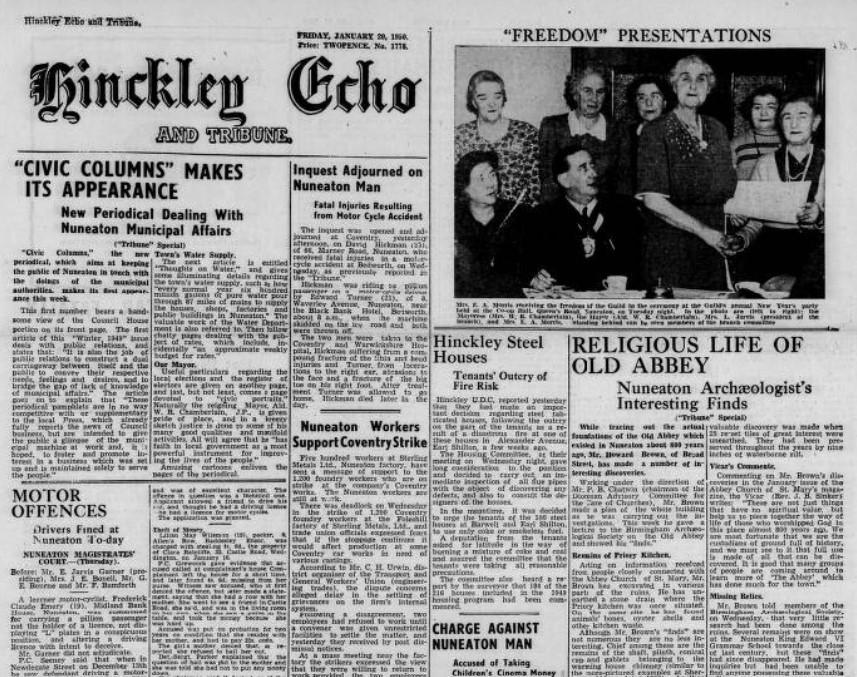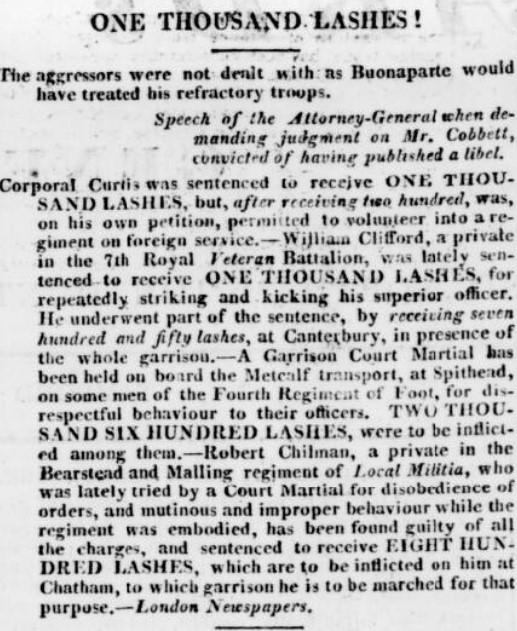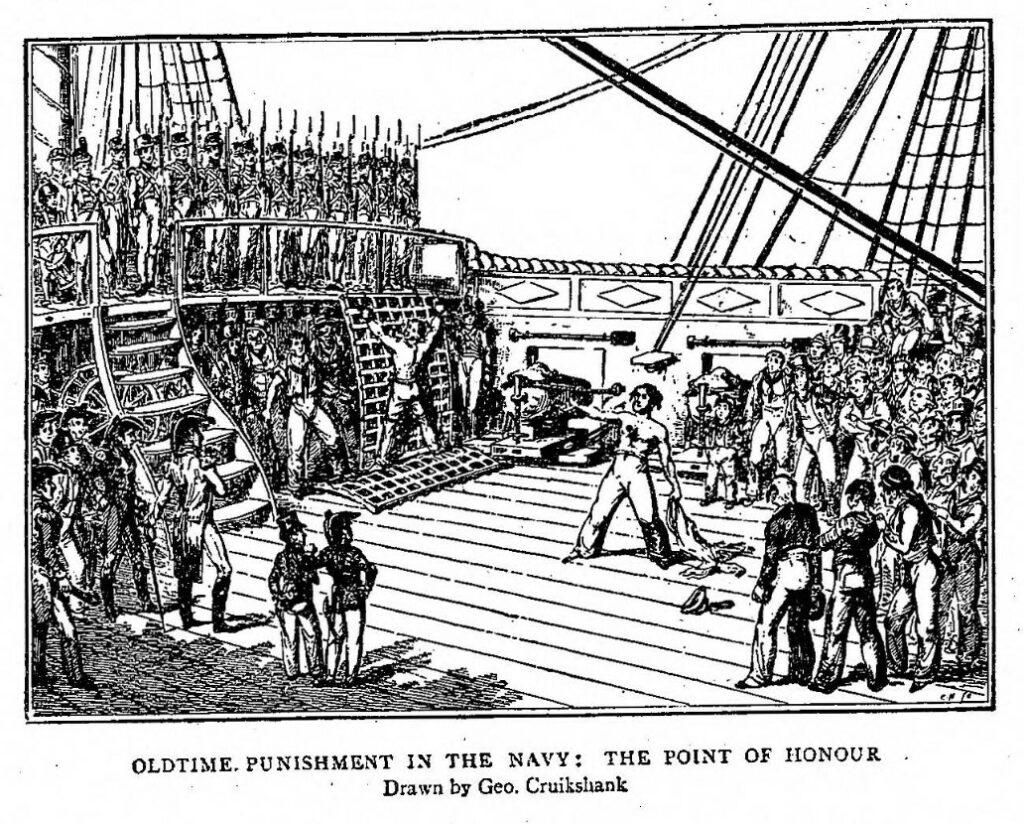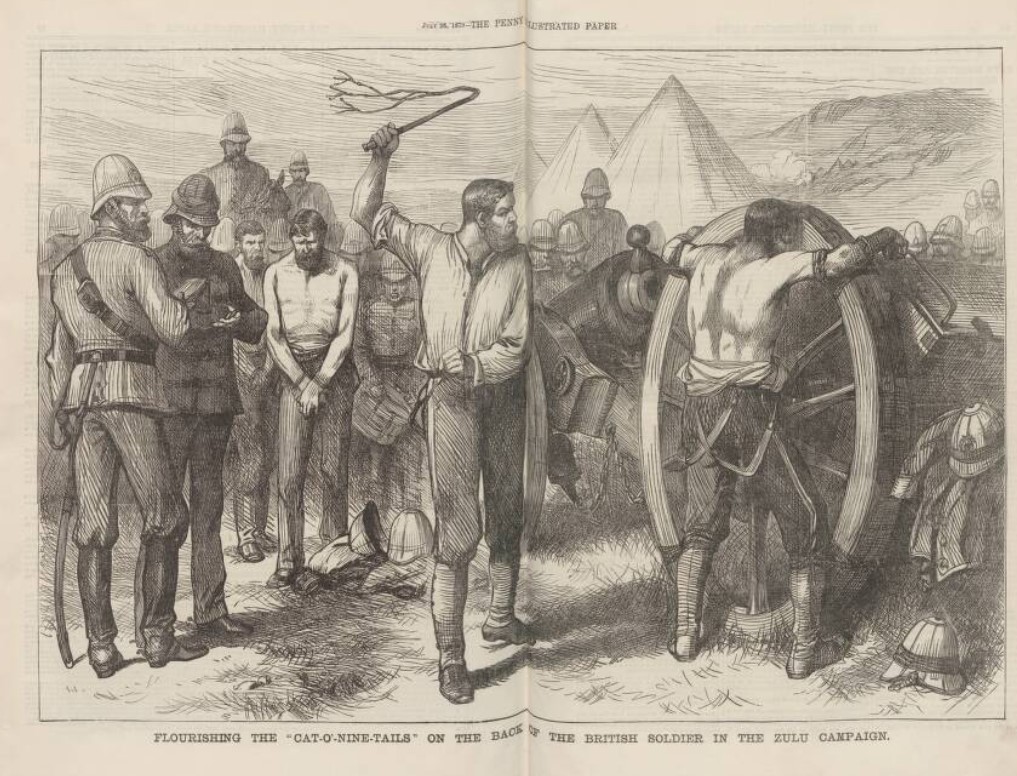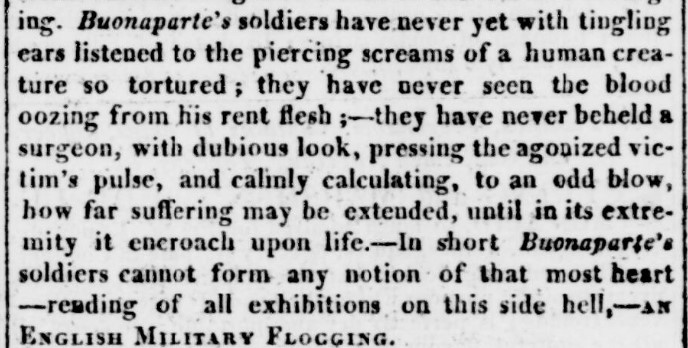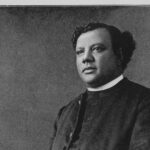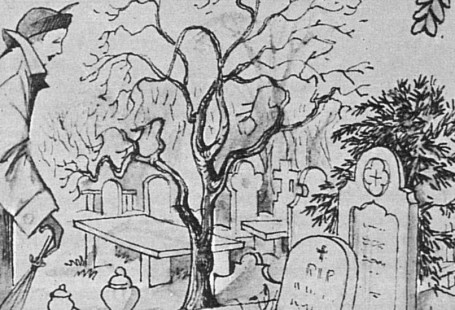This week at The Archive we are delighted to welcome brand new specialist horse-focussed title the Trotting World and Horse Review to our collection, alongside three other brand new titles from Leicestershire, London and Lincolnshire. In all, we’ve added 240,324 brand new pages to The Archive, with updates to 32 of our existing titles from across England and Wales.
With new pages added to titles from Greenford to Grimsby, from Liverpool to Loughborough, from Newquay to Nottingham, we have a plethora of new stories for you to delve into this week. So read on to discover more about all of our new and updated titles of the week, and also to learn about radical newspaper proprietor John Drakard, whose article about punishment in the British Army saw him imprisoned in 1811.
Register now and explore the Archive
That’s enough trotting around, and so without any further ado we’re delighted to welcome the Trotting World and Horse Review to our collection of sporting newspapers. This wonderful title was first published on 16 August 1902 as a ‘Journal Devoted to the Breeding, Training and Racing of Trotters.’ Trotting is the racing of harnessed horses at a trotting gait. Such horses pull a two-wheeled cart, which is often known as a sulky.
As the first edition of the Trotting World and Horse Review revealed, the sport of trotting had seen a ‘great revival’ in England as of the previous ‘two or three years.’ Consequently, the need of such a journal as the Trotting World and Horse Review had been felt, with such a publication needed, furthermore, to unify the devotees of the sport. To this end, the inaugural editorial of the Trotting World and Horse Review outlined how:
While there has been a great increase in the number of its followers [trotting] lacks that unity so necessary for its complete success. Suggestions arise for the betterment of the sport but fail again through the want of a channel by which they can be considered and discussed in the interests of all; thus, reforms that would be fruitful of much good are lost. It is with a view of remeding this and of bringing about a genuine co-operation on the part of all trotting clubs that we put our columns at the disposal of all well wishers of the sport.
At the forefront of the Trotting World and Horse Review’s aims, therefore, were the ‘best interests of the sport,’ the title declaring ‘Combination for Progress’ as it set out upon its maiden voyage into the publishing world.
Costing two pence, the Trotting World and Horse Review appeared weekly on a Friday, filling as it did twelve pages. It included photographs and illustrations of trotters and racers, as well as printing club news from the likes of the Essex Trotting Club and the Wigan Trotting Club. It profiled champion trotters like Cresceus, an American trotter who was then the ‘World’s Champion Trotter,’ as well as printing more technical articles, such as ‘Mechanical Aids to Trotting,’ about the sport.
Meanwhile, the Trotting World and Horse Review provided a ‘Diary of Fixtures’ for trotting races, as well as including the results of meetings at Wigan’s Springfield Park, Barking’s Parsloes Park, Hull Football Club and the Musselburgh Racecourse. The publication also reported on other sports within the equestrian sphere, such as polo and hunting.
By the 1930s Trotting World and Horse Review was still running, at the increased price of 3 pence, and the slightly diminished size of six pages. Edited by a Mr. A. Wrightson of Willesden Junction, London, the publication also included correspondence.
From trotting to radicalism now, and our next new title of the week, which hails from the town of Stamford, in south west Lincolnshire. This title is Drakard’s Stamford News, which was first published on 6 October 1809 by publisher and political radical John Drakard (c. 1775-1854). The editorial of this brand new title declared how:
It has, in our opinion, long been a subject of regret, that in a large district round the Town of Stamford, comprising a populous, wealthy, and radical improving country, there has been no Provincial Newspaper circulated to any considerable extent, from the statement in which, a just character, of the important occurrences in the affairs of the Nation could be estimated; inasmuch as the Provincial Paper most generally circulated in that district, has long been, for the greater part, devoted (prudently, no doubt), to the more profitable insertion of Advertisements: and partly, because of the Editors of that Paper, not from any attachment to a particular cast of political sentiments, but from a determined alliance with the powers for the time being, have seldom thought it convenient to tell the whole truth, where it could endanger the reputation of any faction in office.
Drakard’s Stamford News was, therefore, set to tell the ‘whole truth,’ whilst it was rival Lincolnshire paper the Stamford Mercury which came under fire for its ‘more profitable insertion of Advertisements.’ Drakard’s Stamford News was set to allow its readers to ‘know the real situation of the Country in which they live,’ so that they could ‘test…the capacity and integrity of their Rulers.’
John Drakard’s crusade to tell his readers the truth would land him in hot water. On 24 August 1810 he published a piece entitled ‘One Thousand Lashes,’ which looked at the issue of corporal punishment in the British Army. This would lead to the newspaper proprietor being put on trial at Lincoln for libel, despite the fact that the owners of The Examiner had been tried and acquitted for publishing a similar article.
Drakard was defended by Henry Brougham (1778-1868), who later became Lord High Chancellor, in front of judge and politician Baron George Wood (1743-1824). Drakard was eventually found guilty, his pioneering journalism leading to an eighteen month spell in Lincoln Prison and a fine of £200.
Drakard’s pen, however, did not rest, and he faced other libel suits. He was, most notably, publicly horsewhipped by Robert Brudenell (1760-1837), sixth Earl of Cardigan, at the racecourse in Northampton for some comments made in the Stamford News.
Meanwhile, as well as Drakard’s Stamford News, Drakard was also behind the Stamford Champion, another weekly newspaper that he established on 5 January 1830, for which title poet John Clare (1793-1860) wrote anonymous political satire.
So what did the four pages of Drakard’s Stamford News contain? The title looked at ‘Local and Provincial Intelligence’ from Stamford and the nearby area, as well as taking in news from abroad, such as the ‘Disturbances in India.’ The newspaper also reported on the latest ‘trials, offences and accidents,’ as well as the news from the Middlesex Sessions and the Old Bailey. Furthermore, within the pages of Drakard’s Stamford News you could find out about the latest fashions, the performances at Covent Garden Theatre, and the names of those who had married and died in the previous week.
Drakard’s Stamford News appeared every Friday until 1834, when John Drakard retired to Ripley, North Yorkshire. Publication of his other title, the Stamford Champion, also ceased at this time. Drakard was reduced to relative poverty, and passed away on 25 January 1854.
From Lincolnshire to Leicestershire now, and we’re delighted to welcome our penultimate new title of the week to our collection, which is the Hinckley Echo. Part of the Nuneaton-based Midland Counties Tribune series of newspapers, the Hinckley Echo was first published in 1893 and served the market town of Hinckley, in south-west Leicestershire.
Filling four pages, the Hinckley Echo appeared every Wednesday at the cost of just one halfpenny. The newspaper had a particular focus on football, with a column devoted to ‘Football Gossip,’ as well as another dedicated to the results of local team Hinckley Town. Meanwhile, the Hinckley Echo took a look at local matters, reporting on the latest from the Hinckley School Board and the Barwell Parish Council, as well as detailing accidents in the area, and the deaths of notable people.
Finally, the Hinckley Echo incorporated news from abroad, for example including a ‘South African Letter’ during the Second Boer War, as well as featuring serialised fiction.
Our final new title of the week is a London one, and it is the Feltham Leader, which was founded in 1983 as a sub-edition of the weekly freesheet tabloid newspaper the Staines Leader. The Feltham Leader covered the news from the suburb of Feltham in the London Borough of Hounslow, as well as the latest from Staines, Ashford, Bedfont, Hanworth, Egham, Sunbury, Wraysbury, Stanwell and Shepperton.
Appearing every Thursday, the Feltham Leader was delivered to over 60,000 homes in the area, and featured a property guide, a ‘full guide to the week’s viewing,’ as well as a special pets section. It ceased publication in October 2008 alongside its parent newspaper the Staines Leader.
That’s it from our new titles of the week, but as ever, we have a bumper crop of updated titles for you this week. Highlights include the over 36,000 brand new pages that we have added to the Manchester Evening News, whilst over 30,000 brand new pages join both the Welsh edition of the Liverpool Daily Post and Hampshire’s Farnborough News. You’ll also find extensive updates to Bristol’s Western Daily Press, with updates to Welsh titles the South Wales Daily Post and the South Wales Echo.
‘One Thousand Lashes!’ – A Dangerous Article from August 1810
On 24 August 1810, John Drakard published a piece in his paper Drakard’s Stamford News entitled ‘One Thousand Lashes!,’ which would lead to his imprisonment for libel some months later. But why was Drakard’s article deemed so dangerous, that its author had to be imprisoned? We take a look at the piece, and its stinging attack on the British Army, and by implication, the British establishment.
Drakard’s article ‘One Thousand Lashes!’ begins with a quote from the Attorney-General Sir Vicary Gibbs (1751-1820) regarding the judgement of journalist William Cobbett (1753-1835), who had published an article on corporal punishment in the British Army. Gibbs declared how ‘the aggressors,’ i.e. those being punished, ‘were not dealt with as Buonaparte would have treated his refractory troops.’ This would be a refrain, that punishment in the British Army was worse than Napoleon Bonaparte, then at war with Britain, would give to any of his soldiers.
Drakard then goes on to list some of the punishments given out in the British Army:
Corporal Curtis was sentenced to receive ONE THOUSAND LASHES, but after receiving two hundred, was, on his own petition, permitted to volunteer into a regiment on foreign service. – William Clifford, a private in the 7th Royal Veteran Battalion, was lately sentenced to receive ONE THOUSAND LASHES, for repeatedly striking and kicking his superior officer. He underwent part of the sentence, by receiving seven hundred and fifty lashes, at Canterbury, in presence of the whole garrison.
Drakard continues by describing how:
A Garrison Court Martial has been held on board the Metcalf transport, at Spithead, on some men of the Fourth Regiment of Foot, for disrespectful behaviour to their officers. TWO THOUSAND SIX HUNDRED LASHES, were to be inflicted among them. – Robert Chilman, a private in the Bearstead and Malling regiment of Local Militia, who was lately tried by a Court Martial for disobedience of orders, and mutinous and improper behaviour while the regiment was embodided, has been found guilty of all the charges, and sentenced to receive EIGHT HUNDRED LASHES, which are to be inflicted on him at Chatham, to which garrison he is to be marched for that purpose.
Such examples cause Drakard to reflect how, in a stinging condemnation of the British Army:
The Attorney-General said what was very true; these aggressors have certainly not been dealt with as Buonoparte would have treated his refractory troops; nor need as refractory troops would be treated in any civilized country whatever, save and except only this country. Here alone, in this land of liberty, in this age of refinement – by a people who, with their usual consistency, have been in the habit of reproaching their neighbours with the cruelty of their punishments, is still inflicted a species of torture, at least as exquisite as any that was ever devised by the infernal ingenuity of the Inquisition.
Drakard then goes on to attack the very nature of the punishment itself, in a very vivid portrait of the brutality enacted upon British soldiers:
No – as the Attorney-General justly says, Buonoparte does not treat his refectory troops in this manner: there is not a man in his ranks whose back is seamed with the lacerating cat o’nine tails: his soldiers have never yet been drawn up to view one of their comrades stripped naked, his limbs tied with ropes to a triangular machine, his back torn to the bone by the merciless cutting whipcord, applied by persons who relieve each other at short intervals, that they may bring the full unexhausted strength of a man to the work of scourging.
Drakard continues:
Buonaparte’s soldiers have never yet with tingling ears listened to the piercing screams of a human creature so tortured; they have never beheld a surgeon, with dubious look, pressing the agonized victim’s pulse, and calmly calculating, to an odd blow, how far suffering may be extended, until in its extremity encroach upon life. In short Buonaparte’s soldiers cannot form any notion of that most heart-rending of all exhibitions on this side [of] hell – AN ENGLISH MILITARY FLOGGING.
Drakard goes on to compare an imaginary infraction committed by a soldier who he names Robert Chilman. Chilman, he pictures, had got too ‘saucy in his cups,’ that is to say, he was drunk, and insubordinate to his officers. Such actions in civilian life, Drakard posits, would result in a spell in the stocks, Chilman’s officer, he imagines, being familiar to him as the village shopkeeper. But because Robert Chilman, as labourer, has been ‘metamorphosed into a soldier,’ his indiscretion has become ‘a most atrocious offence, meriting the infliction of torture.’
Drakard’s attack on corporal punishment in the British Army goes far beyond an attack on the cruelty of the punishment itself. It is an attack on the way that the country was governed, the rules and regulations which created the status quo, which governed the differences between soldier and civilian, at a time when the country was embroiled with a costly war with France, when it was sending its soldiers across the world to maintain and enlarge its Empire. To question how the Army was disciplined, then, would sow seeds of discontent, revolution even, which would threaten Britain’s position as a global power. It was no wonder, then, that John Drakard had to be imprisoned for such dangerous resistance.
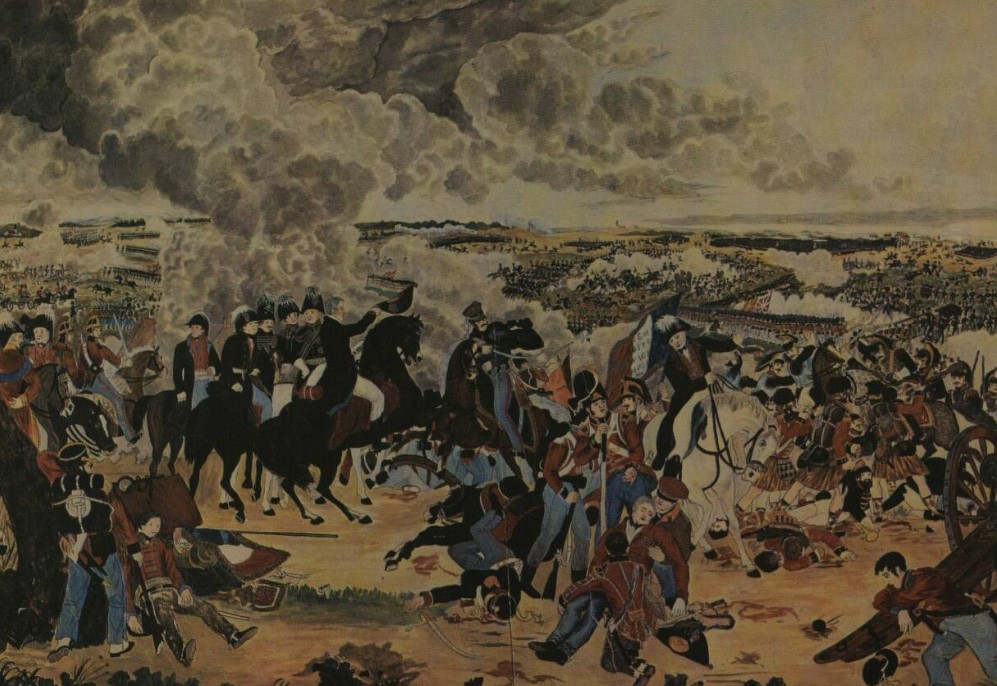
Read more about John Drakard, and the radicalism of the early nineteenth century, in the pages of our newspaper Archive today.
New Titles
| Title | Years Added |
| Drakard’s Stamford News | 1809-1834 |
| Feltham Leader | 1999 |
| Hinckley Echo | 1900, 1903, 1906, 1909, 1912, 1914-1915, 1917, 1919, 1921, 1924, 1927-1940, 1943-1951 |
| Trotting World and Horse Review | 1902-1911, 1917-1932 |
Updated Titles
This week we have updated 32 of our existing titles.
You can learn more about each of the titles we add to every week by clicking on their names. On each paper’s title page, you can read a FREE sample issue, learn more about our current holdings, and our plans for digitisation.
| Title | Years Added |
| Acton Gazette | 1959 |
| Bristol Evening Post | 1988 |
| Derbyshire Advertiser and Journal | 1872-1877 |
| Dunmow Observer | 1986 |
| Essex & Herts Mercury | 1822, 1825, 1831, 1834-1835 |
| Evening Despatch | 1907 |
| Farnborough News | 1976-1978, 1980-1984 |
| Greenford & Northolt Gazette | 1990-1991 |
| Grimsby Daily Telegraph | 1988 |
| Herne Bay Times | 1986 |
| Hinckley Free Press | 1899 |
| Horncastle Target | 1999 |
| Hoylake & West Kirby News | 1986 |
| Lincolnshire Free Press | 1988 |
| Liverpool Daily Post (Welsh Edition) | 1986-1987, 1989 |
| Loughborough Mail | 1986 |
| Manchester Evening News | 1984, 1988 |
| Nantwich Chronicle | 1991 |
| New Observer (Bristol) | 1986 |
| Newquay Express and Cornwall County Chronicle | 1955 |
| Northwich Chronicle | 1991 |
| Nottingham Journal | 1877 |
| Ormskirk Advertiser | 1884 |
| Sheerness Guardian and East Kent Advertiser | 1866 |
| Shepton Mallet Journal | 1990 |
| South Wales Daily Post | 1919 |
| South Wales Echo | 1990 |
| Stratford-upon-Avon Herald | 1978-1980 |
| Walsall Observer | 1990-1991 |
| Western Daily Press | 1987-1988 |
| Widnes Weekly News and District Reporter | 1991 |
| Wilmslow Express Advertiser | 1986, 1991 |
You can keep up to date with all the latest additions by visiting the recently added page. You can even look ahead to see what we’re going to add tomorrow.


